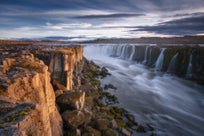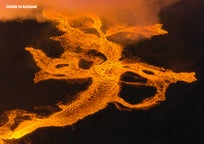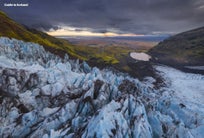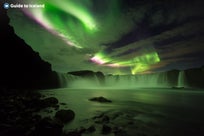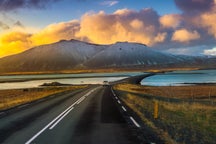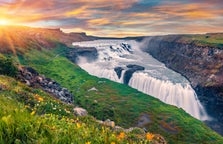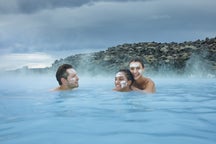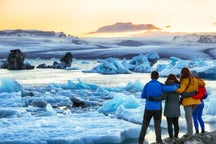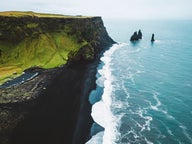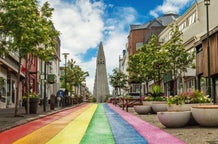
The Ultimate Guide to Transportation in Iceland


What modes of transport are available when travelling in Iceland? How do Icelanders get around? Is it realistic to hitchhike around Iceland? Can you ride a bike around Iceland? This article has all the info you need about transport in Iceland.
Prefer to drive yourself? Here is the cheapest place to rent a car in Iceland, you can also read the ultimate guide to driving in Iceland.
Having a variety of transport methods is a relatively new thing in Iceland. Until the early 1900s, most of the nation was still travelling by foot or by horse. In 1904 the first car came to Iceland marking a change that would slowly bring the island nation into a modern age.
Initially, Icelanders drove on the left side of the road, like the British. There was a plan to switch over to the right to fall in line with other Nordic nations for many decades, but this was interrupted in World War II. During this time, Iceland was under British occupation and the military traffic outnumbered that of the local population so it made sense to continue driving on the left. On the 26th of May, 1968 at 6:00 am, Iceland officially switched over to right-hand driving.
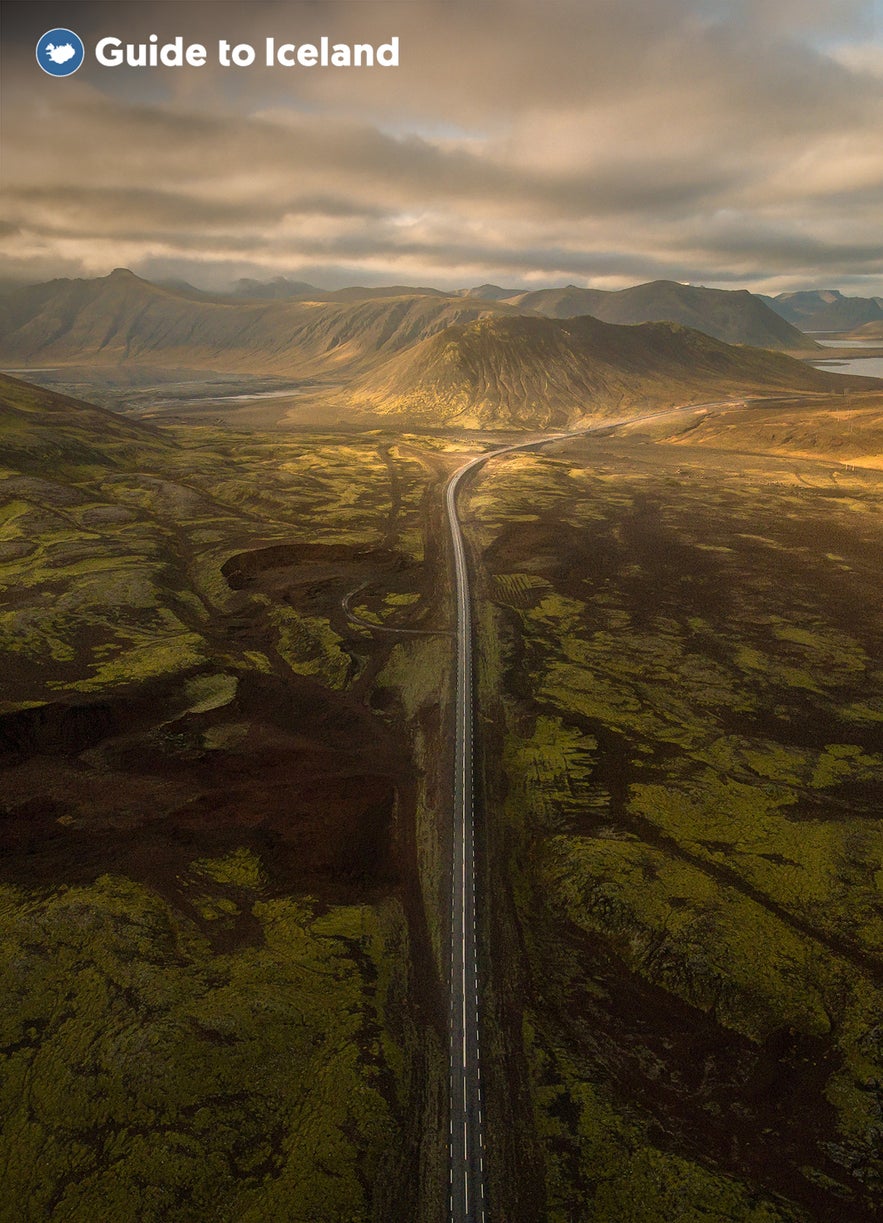
In the years since then, car ownership has boomed. As of 2017, Iceland had more cars than people, making driving the most popular way to get around the country. Since the 1980s upgrades to national highways have made it even easier to travel in a country where today, you can go from the capital in the South West, to Akureyri in the north in under 7 hours.
What should you know if you are going to be travelling around Iceland? How is driving here different? Are there other ways to get around the country?
Read on to find out more.
Travelling by Car
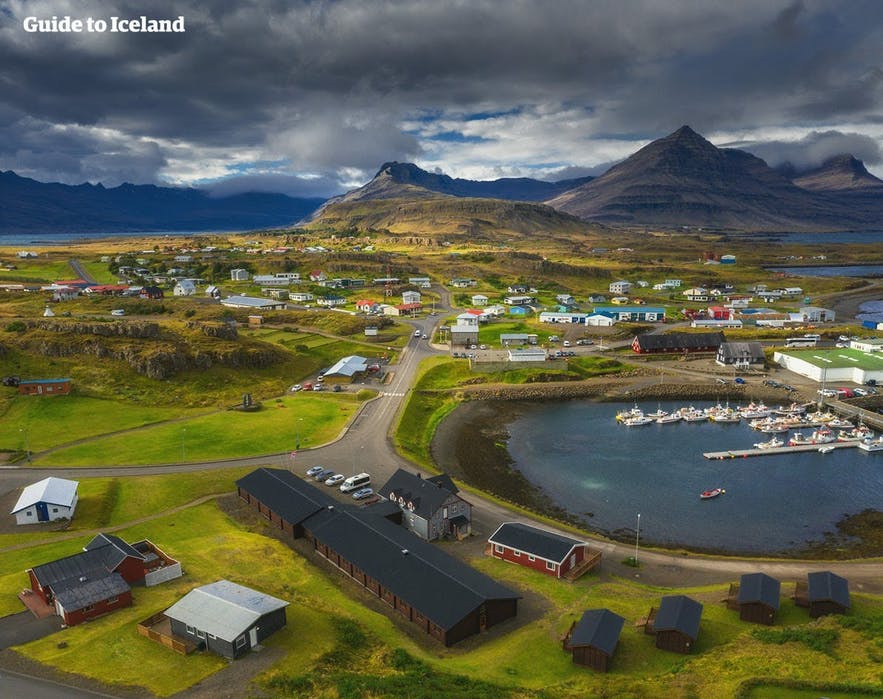
Probably the easiest and most common way to get around the country. Iceland is an incredibly popular destination for those who enjoy a ‘self-drive tour.’ This is where your accommodation, itinerary and activities are all taken care of so when you arrive in Iceland, you just pick up a car at the airport and hit the road. A benefit of choosing to drive around Iceland is that you will get to see so much of the country, and gain a perspective of how the natural landscape in Iceland changes. It also means that you can travel at your own pace, which can be essential for families and couples.
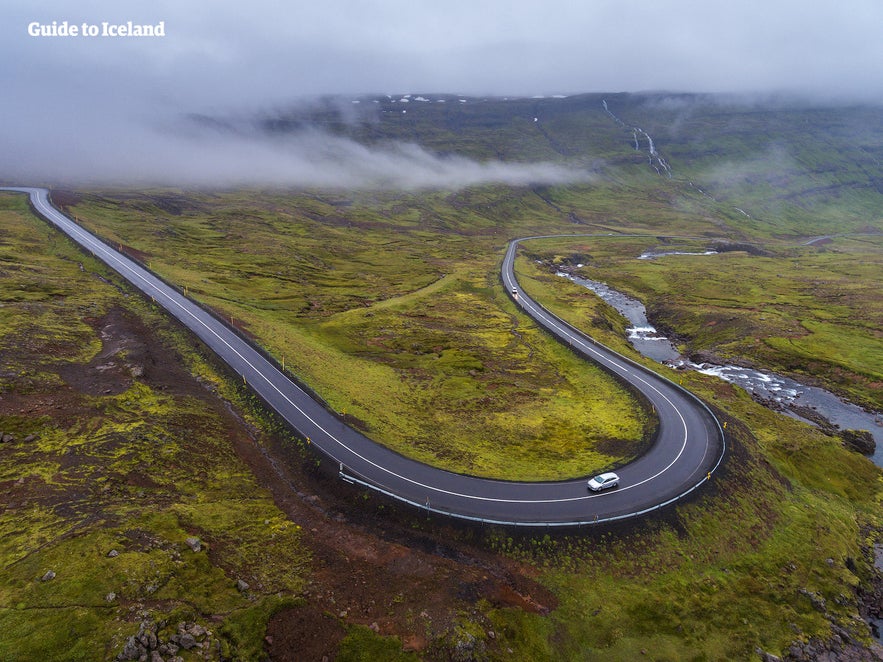
Renting a car in Iceland is quite easy. You just need valid identification, a current driver’s license and a credit card. Common restrictions can be that your license needs to be in Latin alphabet and you must have had a license for at least two years. This isn’t enforced with every rental agency, but it’s good to come prepared.
- If you're coming to Iceland soon this list of What to Do & Where to Go can give you some inspiration.
The types of vehicles you can rent in Iceland range from small cars, right up to camper vans and even luxury vehicles. When renting a car, always take note of which roads it is suitable for, the agency will always tell you this. There are certain roads here that are only suitable for a four-wheel-drive vehicle, and they are always marked appropriately. It’s also highly recommended to book a car with four-wheel-drive if you are travelling in Iceland in winter. Most cars in Iceland are manual, so if you prefer automatic, make sure you notify the rental agency.
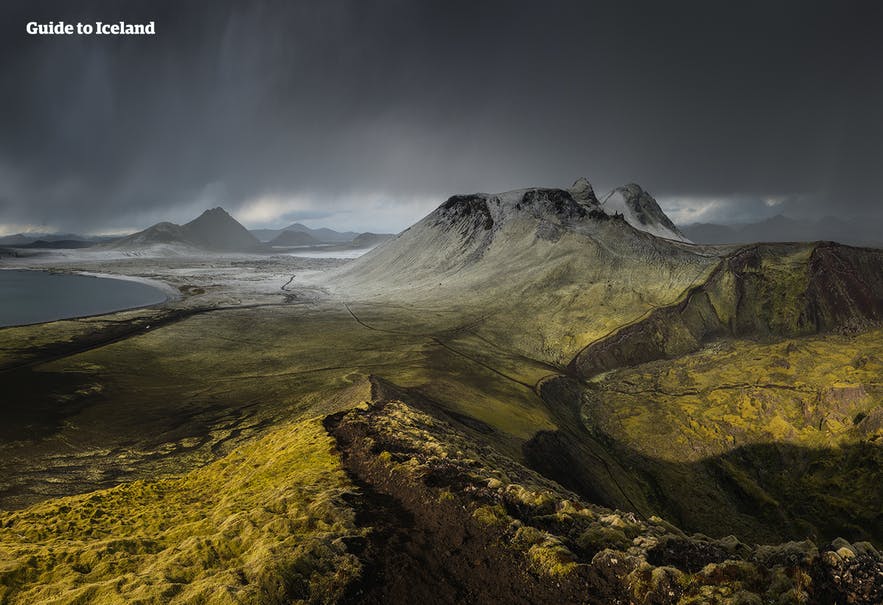
The top speed limit in Iceland is 90 km/h, and this is enforced by police. Always take note of speed limit signs. In regards to road safety, here are a few tips to help you have an enjoyable experience driving yourself around the country.
The weather in Iceland can change in an instant. There’s an old saying which goes, ‘If you don’t like the weather in Iceland, wait ten minutes.’ This means you could be driving on a sunny road that suddenly becomes a frozen wind tunnel without warning. Or the temperature could rise and drop again, thawing and freezing an icy road, making it extremely slippery.
Always take care when the weather changes. If visibility is bad, and there is a safe place to stop until the weather passes, do so.
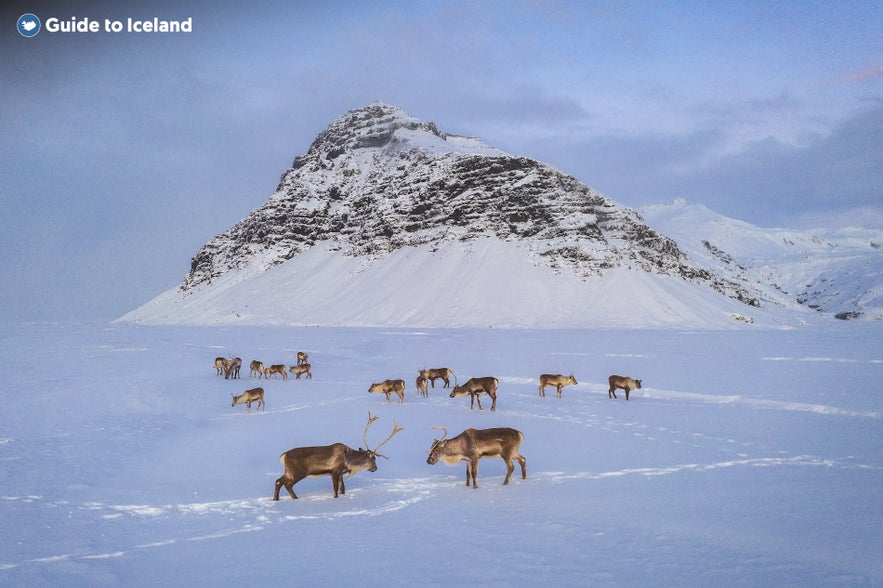
Always be careful when opening your car door. The wind speeds in Iceland can get so high that one of the most common damages to rental cars is a car door being damaged by fast winds as it’s being opened.
In many parts of the country, it’s important to keep an eye out for sheep. These quirky creatures usually have the freedom to roam away from their farms and will often wander across the road to check out what’s on the other side.

Don’t stop in the middle of the road. There are many sections of the country where you can be the only car around, but if you see something that is worthy of an Instagram snap, don’t just stop the car and get out. There have been many serious car accidents in Iceland in the past years that were caused by travelers stopping their vehicles in the middle of the road to get out and take pictures. You should only pull over where it is reasonable and safe to do so.
Travelling by Plane
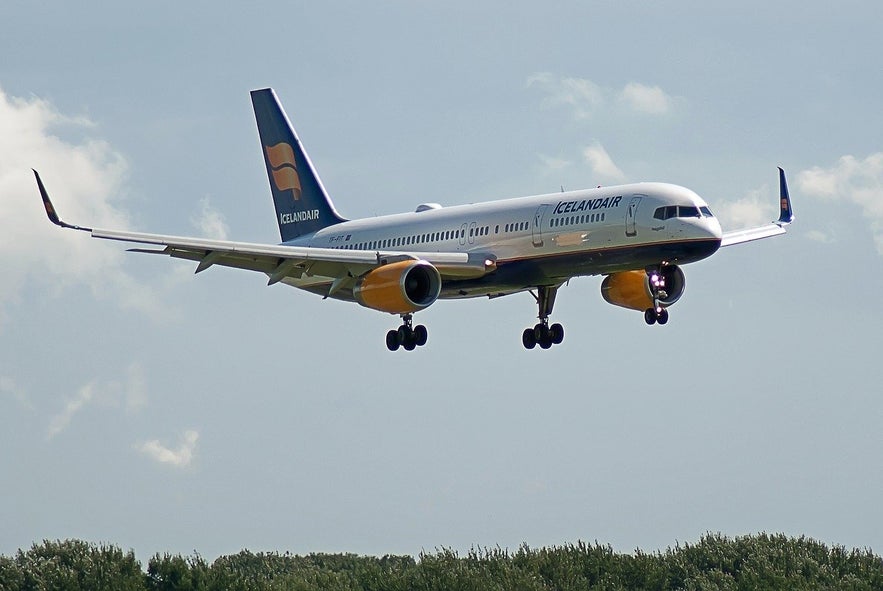 Photo by corgaasbeek
Photo by corgaasbeek
Iceland has one international airport, Keflavík Airport, which is situated on the Reykjanes peninsula approximately 50 km outside of Reykjavík city centre. Iceland also has a network of domestic airports around the country with regular daily flights to many of them.
- For more information on flights see this Ultimate Guide to Flights to Iceland
Reykjavík domestic airport is located close to the centre of the city and services flights to the North, East, West and even Greenland and the Faroe Islands.
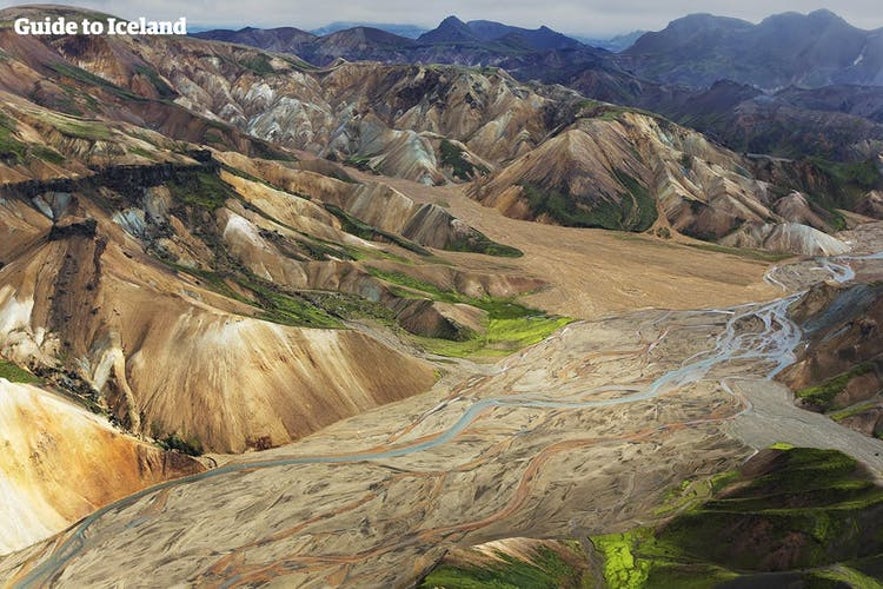
The majority of domestic flights within Iceland take less than an hour, meaning you could easily take a day trip to a place like Akureyri in the north if you are short on time.
Domestic flight services also make it possible to reach some towns in Iceland during winter, when many roads to more remote places are closed.
s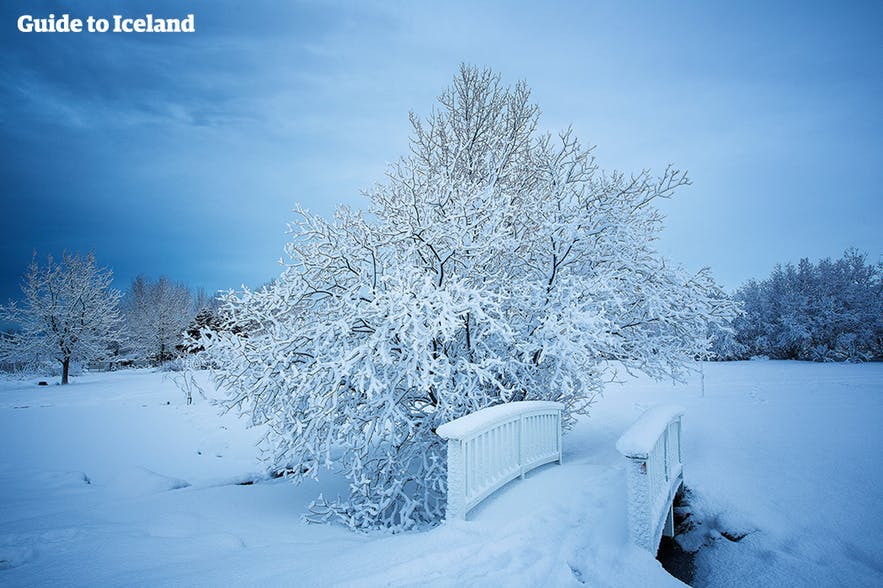
The locations that are serviced by domestic flights throughout Iceland are:
- Reykjavík (South West Iceland)
- Keflavík (South West Iceland)
- Grímsey (North Iceland)
- Akureyri (North Iceland)
- Egilsstaðir (East Iceland)
- Vopnafjörður (East Iceland)
- Þórshöfn (East Iceland)
- Ísafjörður (West Iceland)
Travelling by Bus
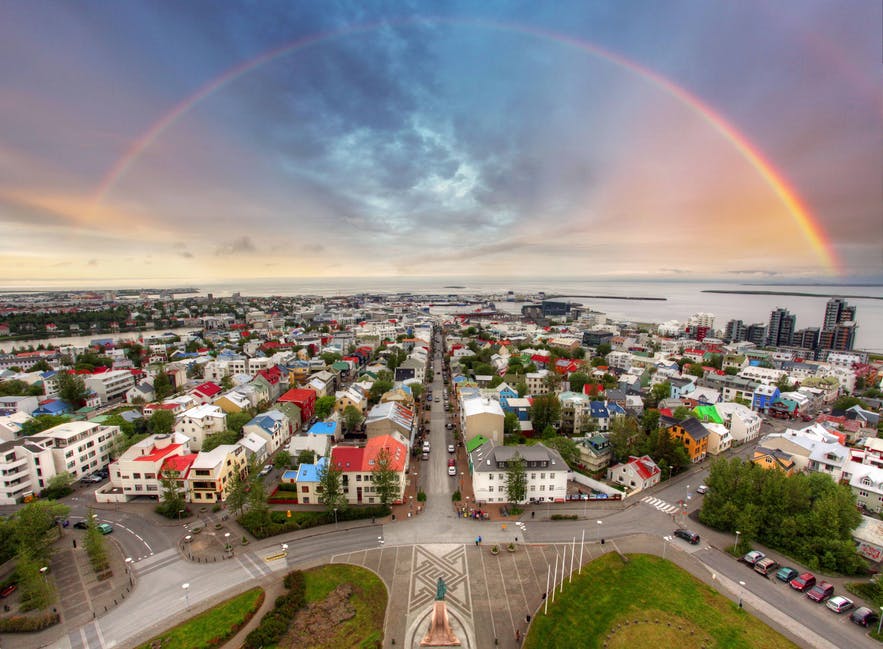
Iceland’s only public transport network is a bus service. This is run by the government and is a convenient way to get around in Reykjavík and the surrounding areas.
Official bust stops are found throughout the city, and all of them have the timetable and bus route available there.
The bus company is called Strætó BS, and there are a few ways to pay for a ride.
Stræto has an app called Klappid which is available for iOS and Android. It is available in English and is an incredibly convenient way to purchase tickets and manage your trip.
You can also pay for your fare with exact cash, and you can find information about prices on the city bus website. Change cannot be given on the bus, and there is no option to pay with a card.
Day passes can be purchased at several retailers and are available for one to three days. The complete list of vendors that sell bus passes can be found on the city bus website.
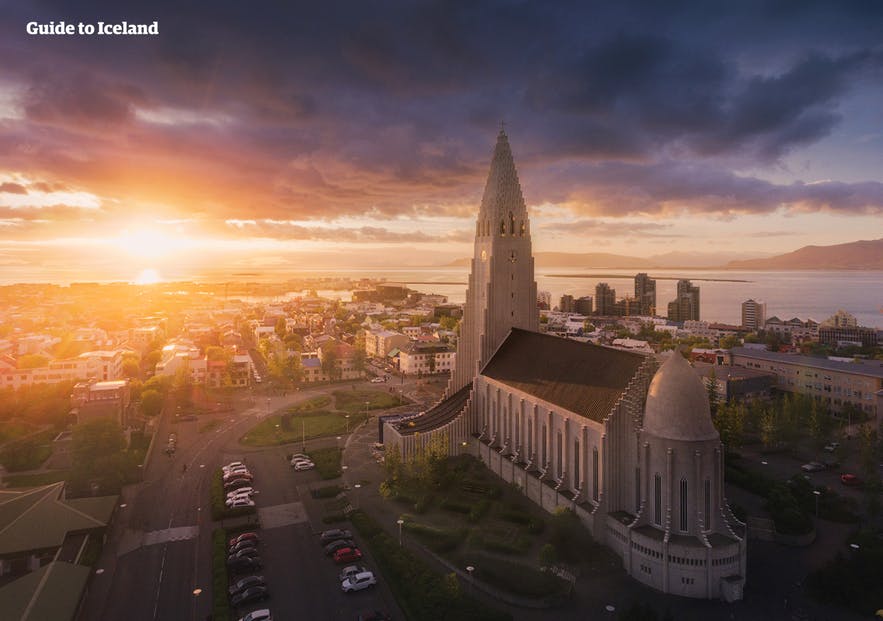
Many of the bus drivers speak English, but it is not a requirement of their employment.
There are transfer services that operate between Reykjavík and Keflavík International Airport. These work on timetables that reflect the flights coming in and out of Iceland.
Travelling by Taxi
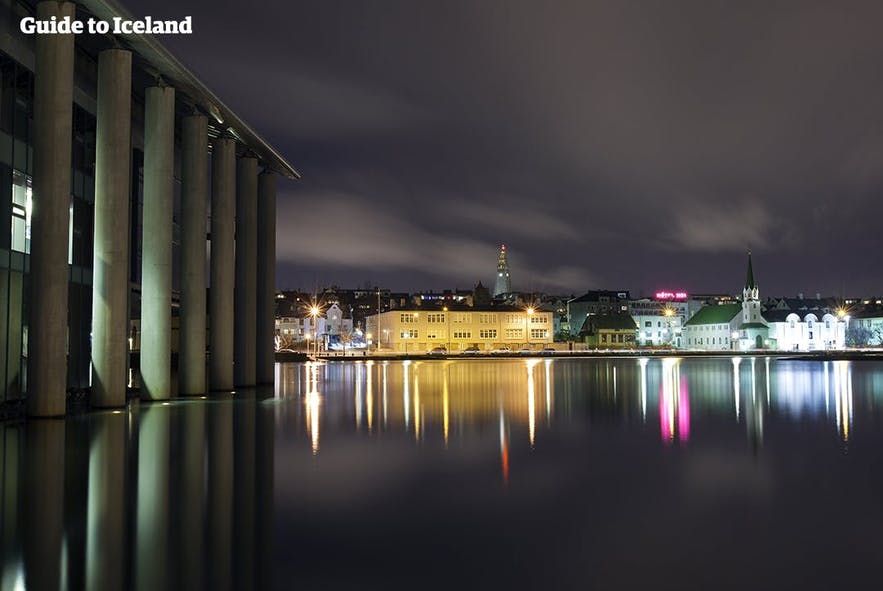
Travelling by taxi can be convenient in downtown Reykjavík, although compared to other countries the cost of a cab can be quite high. Taxis are located at cab ranks around the city. You can also call a taxi if you can’t find the cab rank or don’t have success hailing one.
- See also Nightlife in Reykjavík
Taxis arrive pretty quickly in Iceland, as with bus drivers, although most drivers speak English, it’s not a requirement of their employment so as long as you can communicate where you need to go, you should be fine.
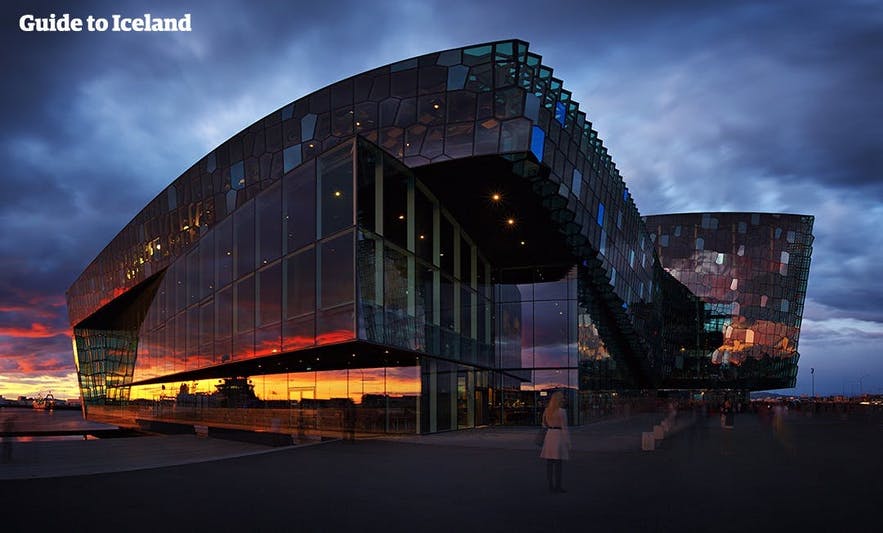
There are two taxi companies in Reykjavik, and they are Hreyfill Bæjarleiðir and BSR. To book through Hreyfill call +354 588-5522. To call BSR +354 561-0000. Hreyfill also has an app available on iPhone and Android.
There is no Uber or Lyft in Iceland yet. Although many locals would love to see these kinds of businesses come to Iceland, the legislation is not yet in favour of introducing them.
Hitchhiking
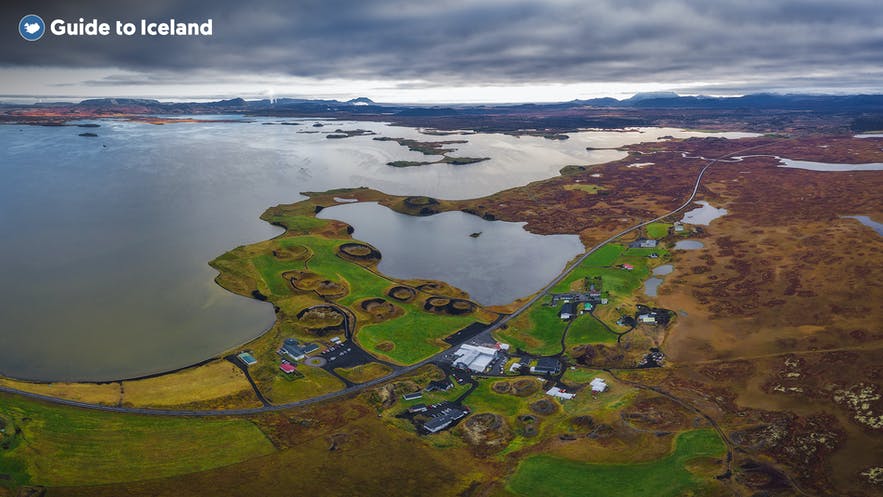
Iceland is probably one of the few countries left in the world where hitchhiking isn’t considered insane or dangerous. The crime rate is incredibly low here and as a result, hitchhiking can be a common way of getting around for some thrifty travellers who don’t mind the thrill of standing by the side of the road for hours.
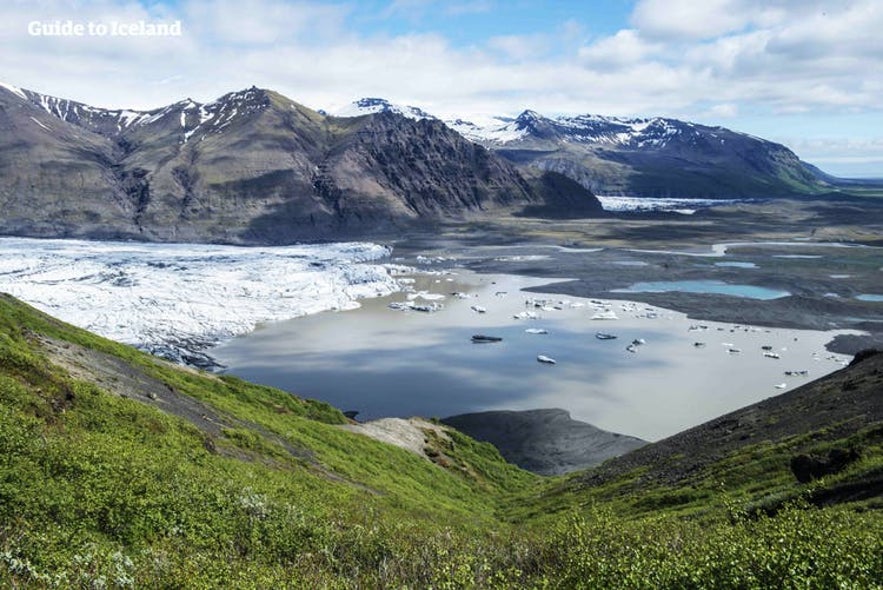
Due to the small population and tourism boom, many of the drivers on country roads are likely to be tourists as well who might be heading in the same direction you are. Locals have also been known to pick up a hitchhiker or two while on a long drive to help pass the time. If you are planning on hitching, make sure you have weather-appropriate clothing. You might save a bit of cash by travelling this way, but your holiday will be ruined if you catch pneumonia from standing by the side of the road in the wind and rain for hours.
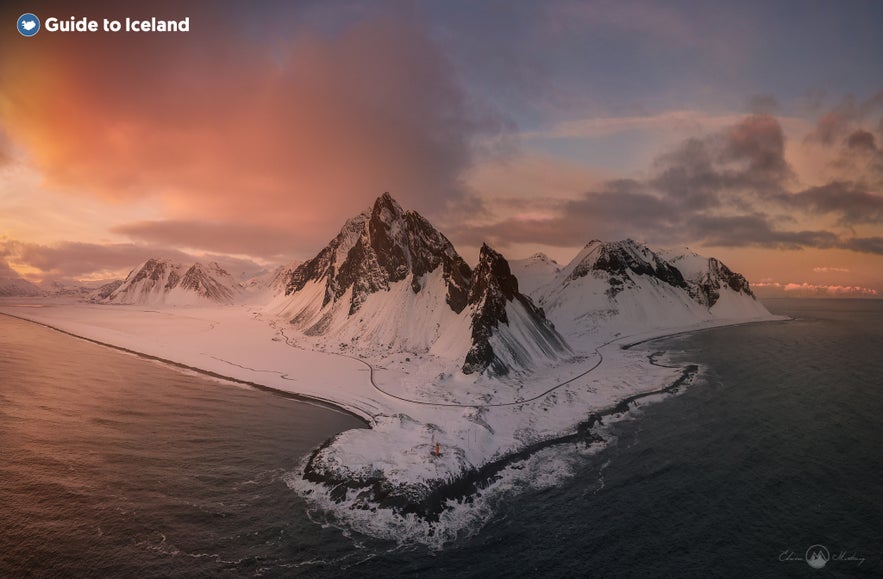
It should be stated that hitchhiking is an incredibly impractical way of getting around the country. Many visitors who plan on saving money by hitchhiking and camping have been caught out because they didn’t research appropriately. There are some places in Iceland where roads might be cut off, meaning that you could spend a significant amount of time waiting to see a passing car which will dramatically decrease the odds of hitching a ride.
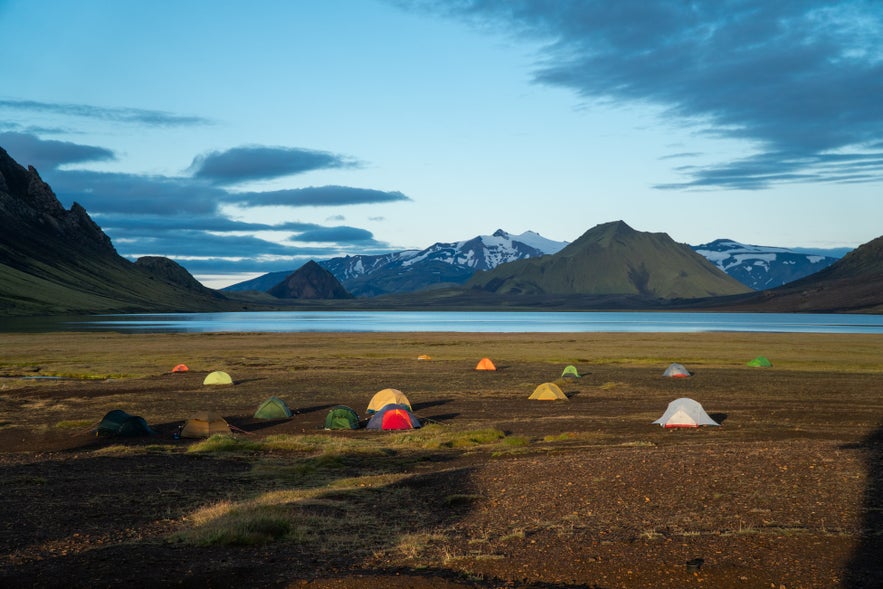 Photo by Pavel Brodsky
Photo by Pavel Brodsky
Also, camping is only allowed in designated camping areas. This is to prevent damage to the delicate environment so that it remains to be enjoyed for years to come. If you pitch a tent outside of a designated area, be prepared to face the consequences if you are discovered by authorities.
As for safety, there hasn’t been a major crime incident involving hitchhikers in many years, but trust your instincts, and never enter a vehicle if you feel unsafe.
- For more information check out A Hitchhiker's Guide To Iceland
Travelling by Boat
 Photo from 10-Day Cruise Around Iceland by Sea
Photo from 10-Day Cruise Around Iceland by Sea
There are a few places in Iceland that are only accessible by boat. During winter some parts of the country are cut off due to weather and the only access is via fjords. Travelling by boat can show you a completely different view of Iceland. Seeing the coastline from the sea is something not many travellers get to witness.
- See the gentle giants of the sea with a Whale Watching Boat Tour from Reykjavík
Iceland sits beneath the Arctic Circle, but there is an island in the north, Grímsey, that straddles this landmark. You can take a boat to Grímsey from some towns in the north. Many visitors take a day trip to the island to get their passport stamped and see abundant wildlife there.
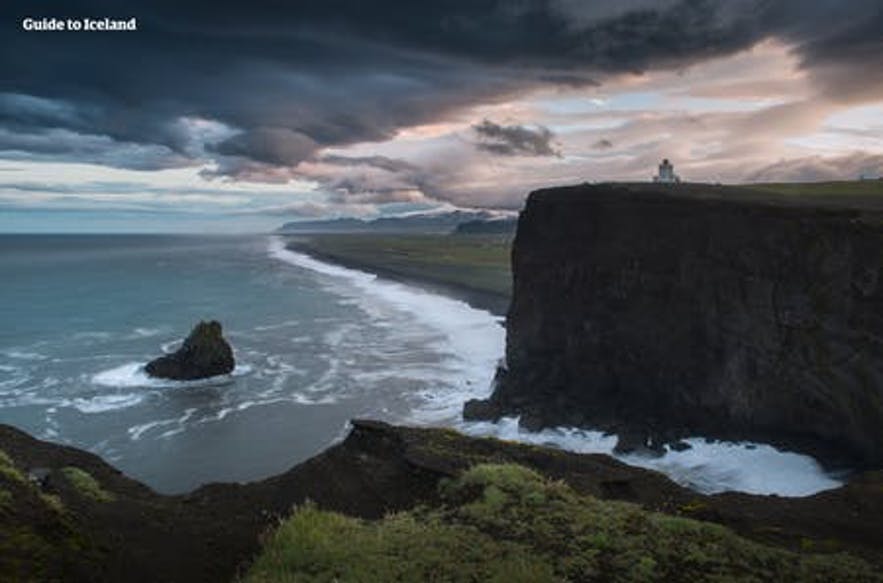
There are also a few ferries around the country where you can take a car. These will travel to more remote parts of the country and some islands, like the Westman Islands. If you plan to book a car passage on a ferry, always reserve ahead.
- Want to see the nature of the Westman Islands? Check out this Puffin and Volcano Tour
You can also travel to Iceland by boat. There are regular ferries that travel to Iceland from both Denmark and England. These ferries land in the eastern Icelandic port of Seyðisfjörður. It is possible to take a vehicle on these ferries.

There are also a number of cruise ships that stopover in Iceland.
Carpooling
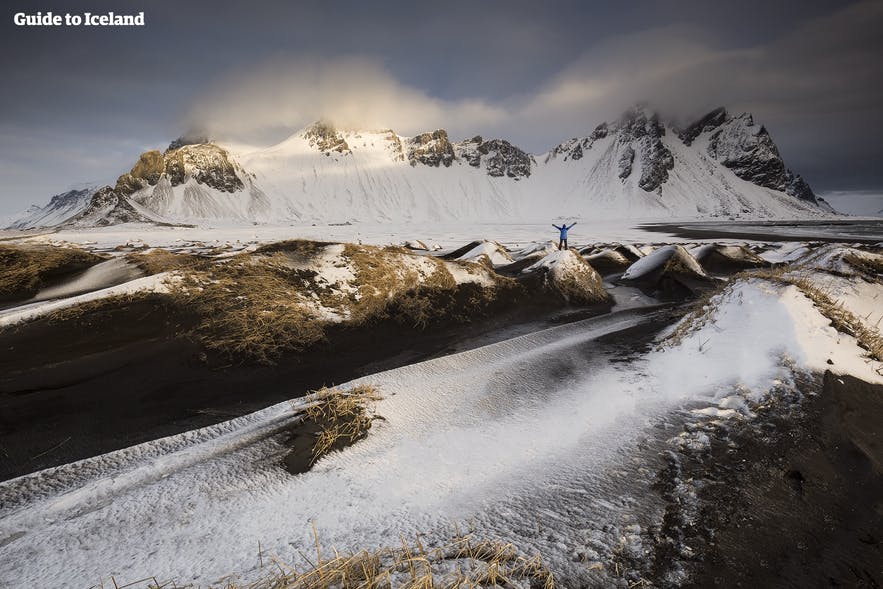
Although Iceland doesn’t yet have ride services like Uber, the small community mindset has made it possible to carpool. The laws on accepting payment for transporting someone are very strict here, but as with many other situations in this country, if there’s a loophole people can use to make things easier, they will.
There are two web-based ways you can go about carpooling in Iceland. Samferda.net is a website that was established in 2005 by a German and an Icelander who felt that travelling around the country without a car could sometimes be difficult and expensive.
- Delve into the jewel of South Iceland with this Jokulsarlon Amphibian Boat Tour
Members of the site can publish information about a trip they are taking and how many passengers they can take along with them. The website makes it possible for people to split the cost of transportation and fuel. Think of it a bit like hitchhiking with a small fee and much more convenience.
The website is easy to use and is available in English and German. There’s an option to contact drivers if you have further questions about costs or the destinations they are heading. Locals travel all around the country during most times of the year, so there’s a high chance someone is heading in the direction you want to go.
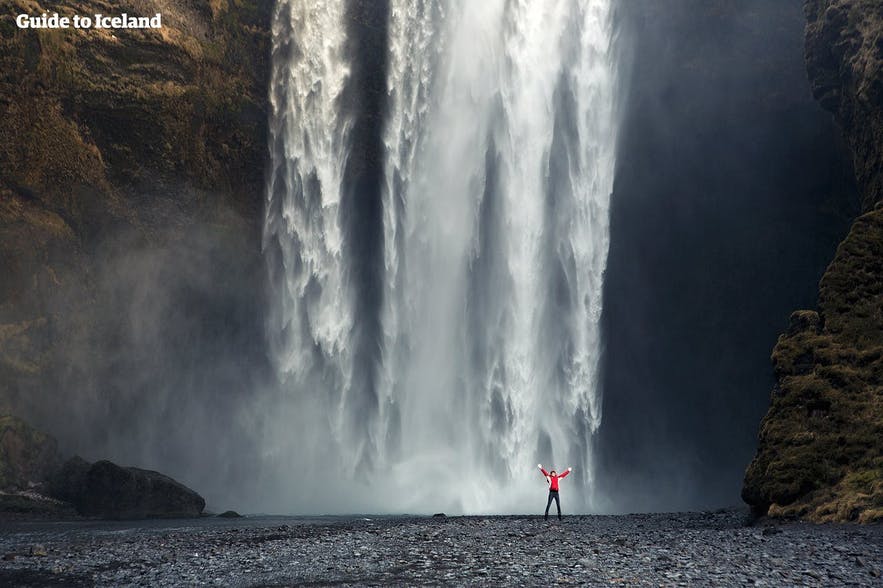
There is also a Facebook group called ‘Skutlarar.’ This one is more like a ‘not quite legal’ version of Uber. In the group, you can post where you are wanting to go, and drivers will respond with a price they will do it for. The primary purpose of the group is for drivers to earn a bit of extra cash and for passengers to have an alternative to taxis that’s a bit cheaper.
The reason it’s ‘not quite legal’ is that you are supposed to have a permit to accept payment for transporting people in Iceland; however, nobody is doing anything to stop it so you can rest easy knowing you can use this service without getting into trouble.
As with any other form of internet-based transaction, it’s always a good idea to contact the driver first to make sure you feel comfortable travelling with them.
Hiking
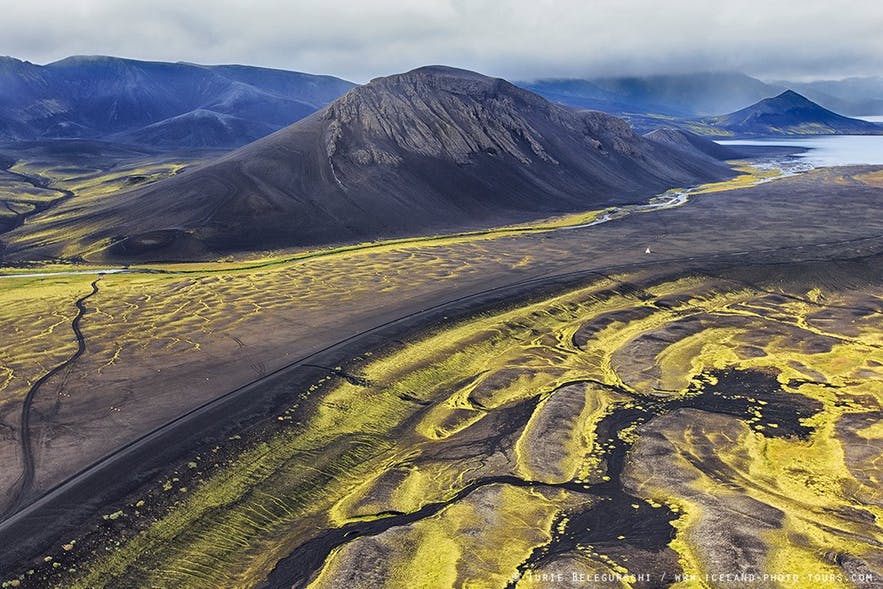
Iceland is a popular travel destination for hikers of all levels. Travelling on foot will give you a completely different perspective on the natural environment. A walking trail will take you through landscapes no car ever could.
- For more information see this article on Hiking in Iceland
It’s possible to take short hikes of an hour or two, but you can also take treks that last for up to a week if you’re looking for a way to truly get into nature.
Always remember the weather here can change in an instant, so it’s essential to plan for it. In summer the temperatures can soar above 20 °C and drop below - 10 °C in winter, so hiking is better in the summer months.
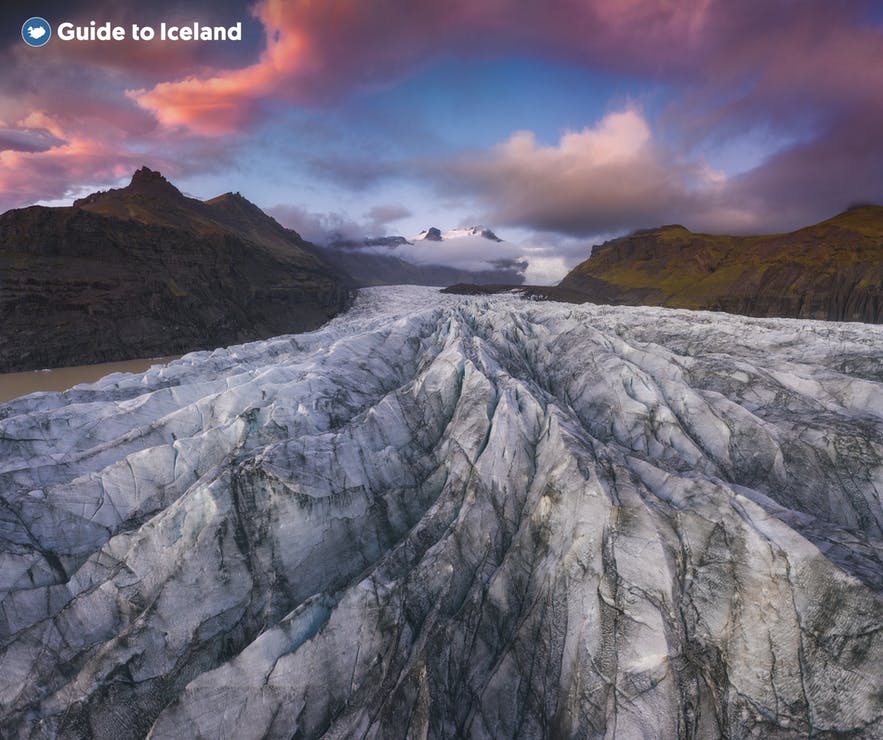
Iceland is also blessed with extremely long daylight hours during summer, so if you’re hiking, there’s plenty of time to fit more steps into your day.
If you are hiking over multiple days, some trails have small huts along them. These are free to use, but you need to provide your own bedding and always try to leave it as you found it. If you need hiking gear but want to save on check-in luggage for your flight, most hiking gear can be rented in Reykjavík.
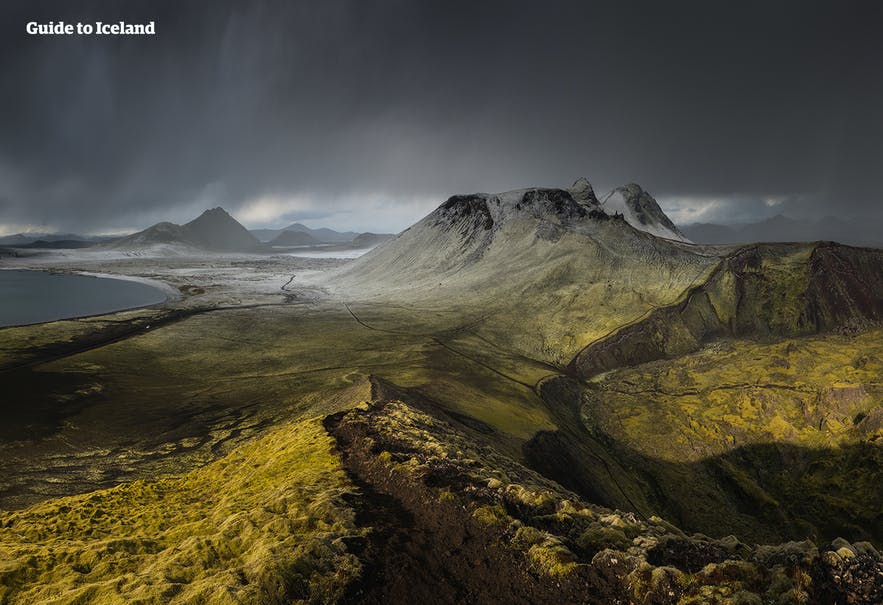
When hiking in the highlands, a GPS and map are a necessity. Although most trails are clearly marked, it’s always good to have a backup. As with any nature sport, always notify someone where you are going, what your intended trail is and when you expect to return. If you happen to have an accident or get lost, this information can be used to locate you quickly.
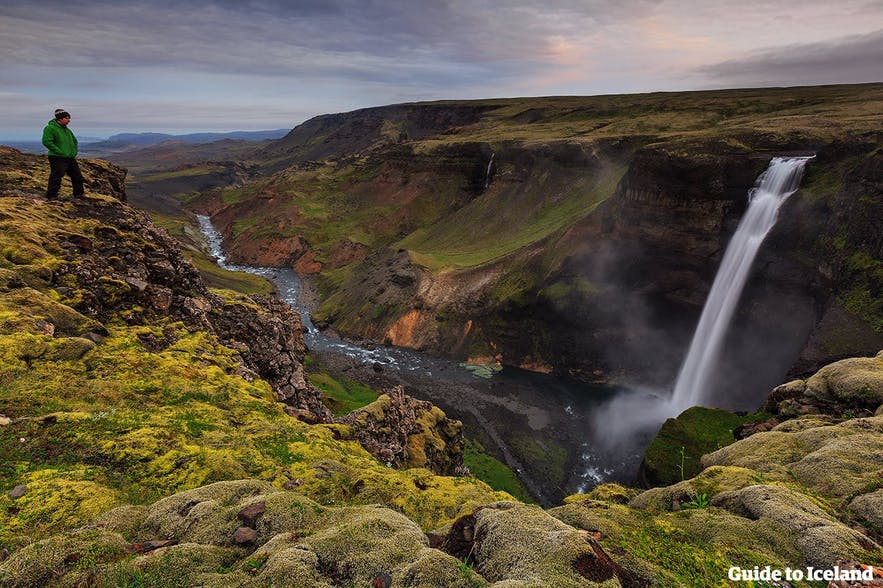
A perfect way to experience a hike in Iceland is to go on a hiking tour. Travelling with an experienced guide will ensure you have a safe and enjoyable experience.
Travelling by Bike
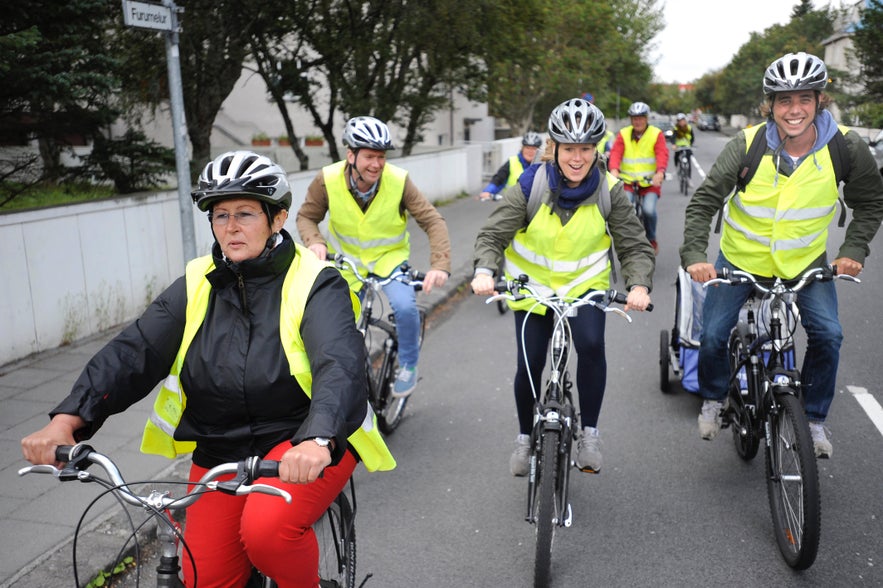 Photo from Classic 2.5 Hour Guided Sightseeing Bike Tour of Reykjavik
Photo from Classic 2.5 Hour Guided Sightseeing Bike Tour of Reykjavik
It may not be the first place you think of when considering a biking holiday, but in recent years Iceland has become a bit of a mecca for those wanting a real cycling challenge. If you are experienced enough, biking around the country is a great way to discover the land of fire and ice.
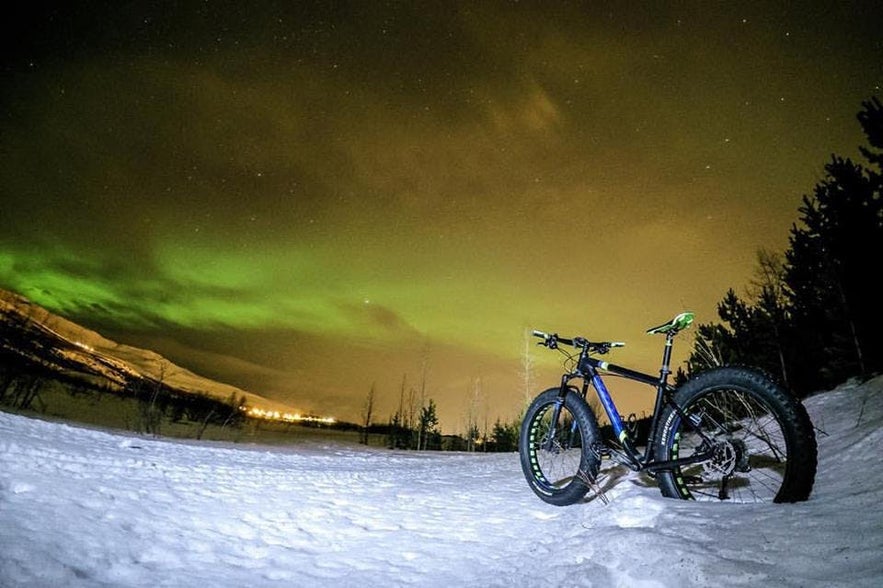 Photo from 2-Hour Fat Bike Tour of Lake Myvatn Sights with Transfer from Reykjahlid
Photo from 2-Hour Fat Bike Tour of Lake Myvatn Sights with Transfer from Reykjahlid
If you do decide that you want the challenge, know that preparation is everything. You will experience rain, wind, sand storms and lots of other changes in the weather. You should also make sure you know how to make minor repairs and try to have plans for just about any situation. If you are going to bike the Ring Road, it’s going to be much more comfortable and safe in summer, and it will probably take longer than you think.
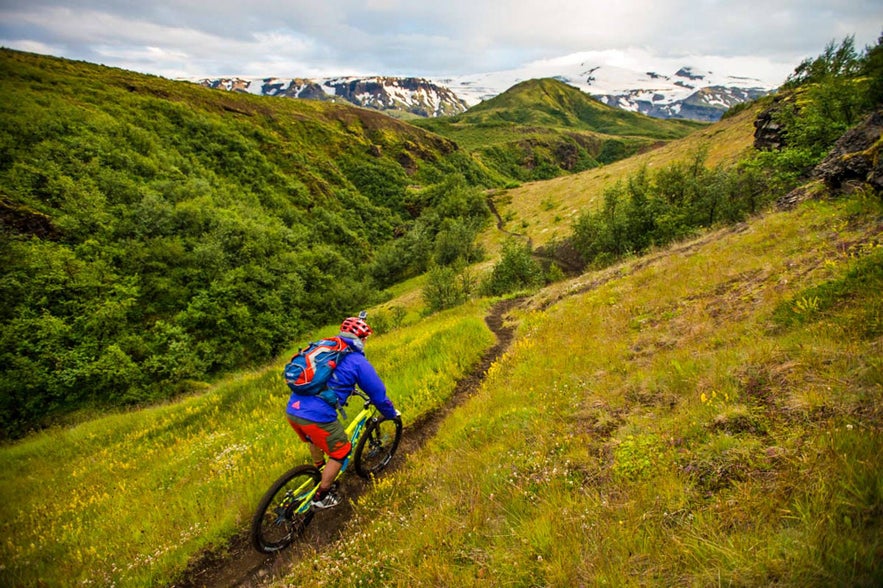 Photo from 3.5 Hour Small-Group Mountain Bike Tour in Heidmork Nature Reserve with Transfer from Reykjavik
Photo from 3.5 Hour Small-Group Mountain Bike Tour in Heidmork Nature Reserve with Transfer from Reykjavik
Bringing your bike to Iceland shouldn’t be too difficult. Most airlines will let you store your bike in the cargo hold for a fee if it is packed in a bike box. When you arrive in Iceland, there is a facility 100 metres outside of the arrivals exit where you can reassemble your bike.
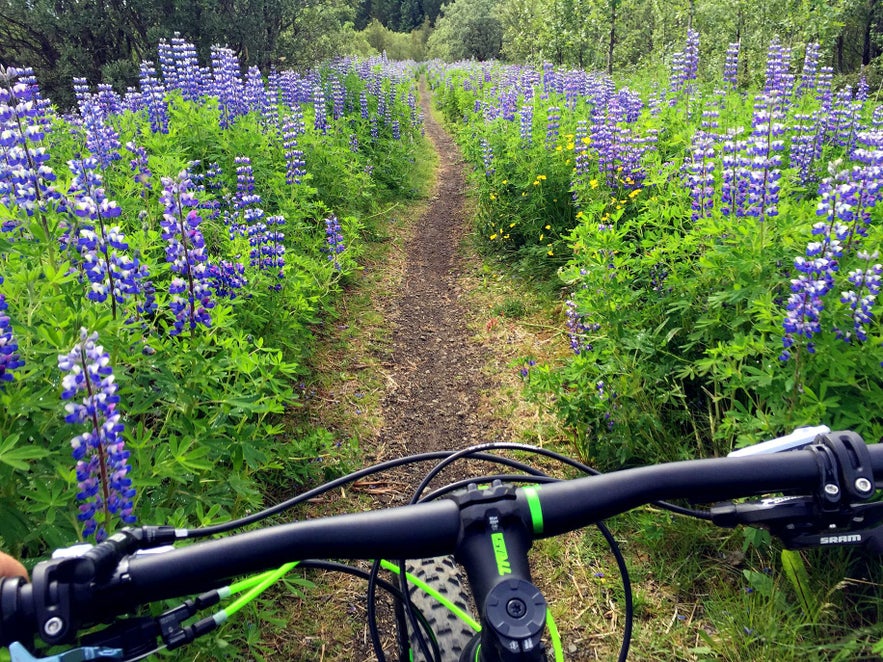 Photo from 3.5 Hour Small-Group Mountain Bike Tour in Heidmork Nature Reserve with Transfer from Reykjavik
Photo from 3.5 Hour Small-Group Mountain Bike Tour in Heidmork Nature Reserve with Transfer from Reykjavik
If you want to rent a bike locally, it’s totally possible. You can also bring a bike with you if you travel here on the ferry from Denmark.
Here is a map of cycling trails in Iceland which is updated every year.
Helicopter Tours
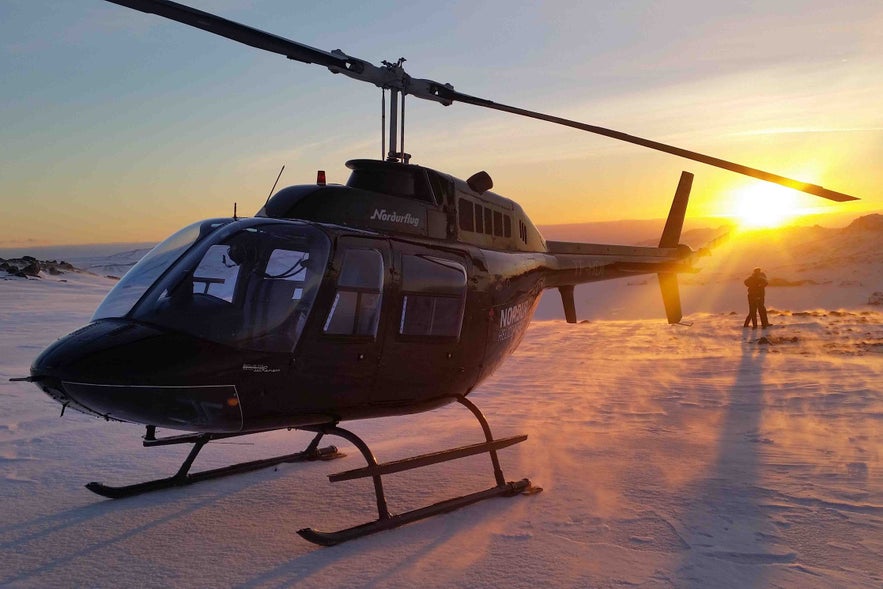 Photo from Fascinating 1-Hour Helicopter Tour of Geothermal Sights with Transfer from Reykjavik
Photo from Fascinating 1-Hour Helicopter Tour of Geothermal Sights with Transfer from Reykjavik
Probably the most lavish method of transport on this list is to go by helicopter. Although for most people it’s not traditionally a way of getting from point A to point B, Helicopter rides are in fact a fun and unique way to take in the dramatic Icelandic landscape.
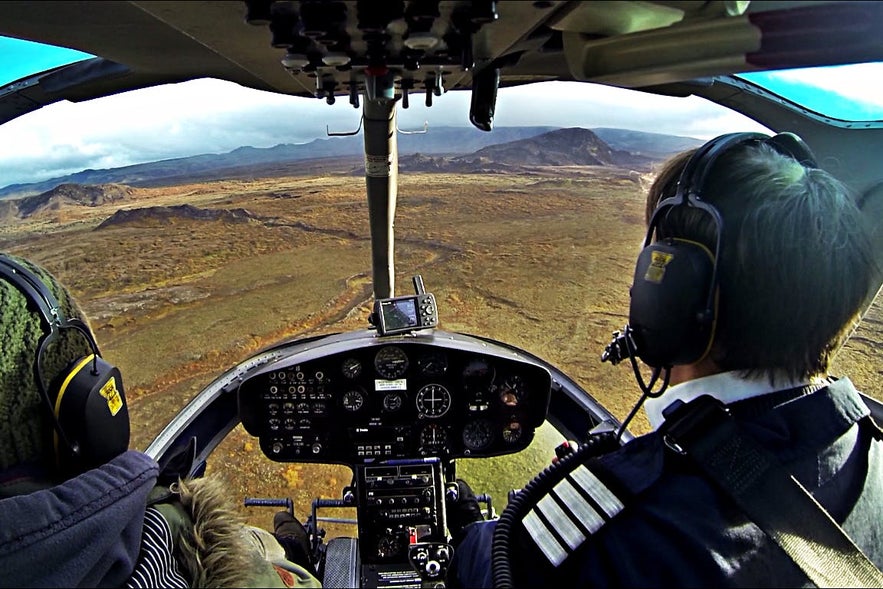 Photo from Scenic 1 Hour Helicopter Tour over the Craters of Reykjanes with Transfer from Reykjavik
Photo from Scenic 1 Hour Helicopter Tour over the Craters of Reykjanes with Transfer from Reykjavik
There are several tours available offering ariel tours of Reykjavík and some fascinating geothermal areas. One benefit of taking a helicopter tour is that often they can land in extremely remote locations, meaning that you have a chance to see the natural wonders of this great country while feeling like you’re the only people there.
Day tours
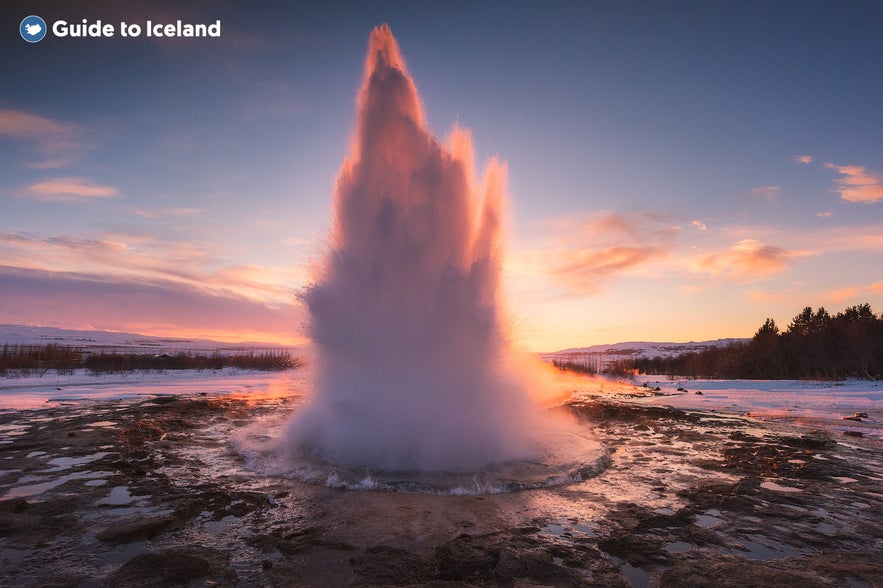
If you want to take in some sights and sounds but might be a little pressed for time, day tours are a perfect way to get around. These types of trips are specifically designed to get you the most out of a day. One of the most popular day tours in Iceland is a Golden Circle tour.
- See Iceland in miniature with this Snaefellsnes National Park Small-Group Day Tour
- Get more out of your stay with a Private Diamond Circle Tour in North Iceland
- Explore Iceland's south coast with this tour to Solheimajokull Glacier
This tour takes you to three of the ‘must-see’ places in Iceland, Þingvellir National Park, Gullfoss waterfall and Geysir geothermal area. The tour takes care of the transport and comes with an incredibly knowledgeable guide.
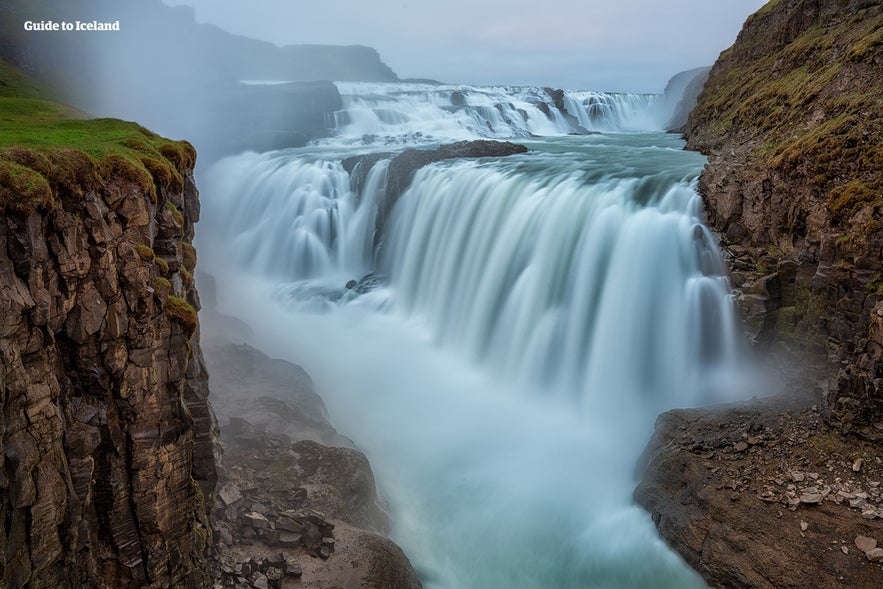
You can be picked up from your accommodation, complete the tour and be brought back at the end of the day in time for dinner and drinks. The Golden Circle is just one of the many day tours available.
Guided Tour Packages
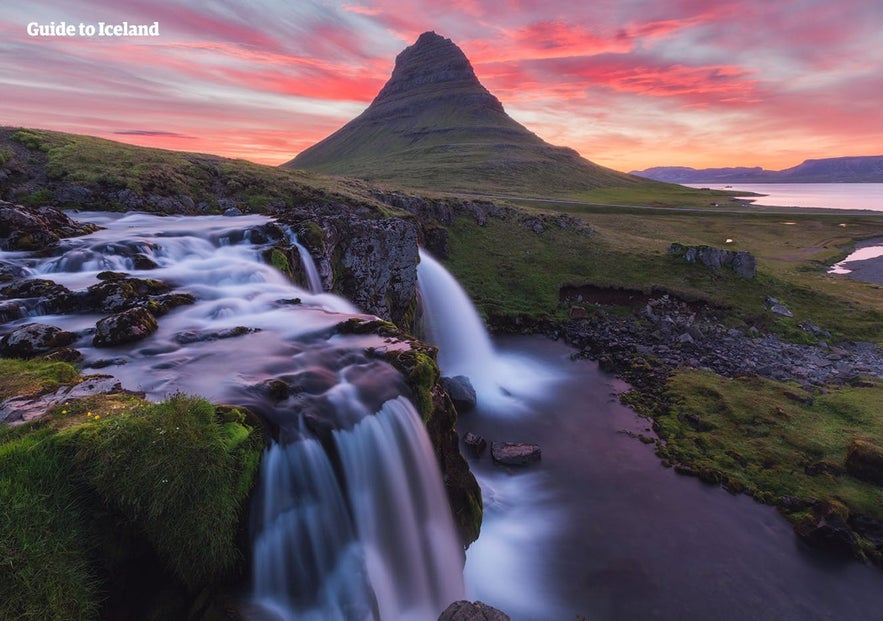
If you want to get around Iceland but don’t really feel like driving, a guided tour package is probably the best way to do it.
Guided tour packages take care of all transport and accommodation from the moment you arrive at Keflavík airport.
Once you clear customs, you board the bus to Reykjavík and check into your accommodation. You can choose to stop at the world-famous Blue Lagoon Spa on the way to refresh after your flight or add it at the end of your trip for one last bit of pampering before you head home.

From the time you arrive in the city, all the details are taken care of. You can choose additional activities throughout your stay like horse riding, glacier tours, going inside a volcano, snorkelling between continents and many more.
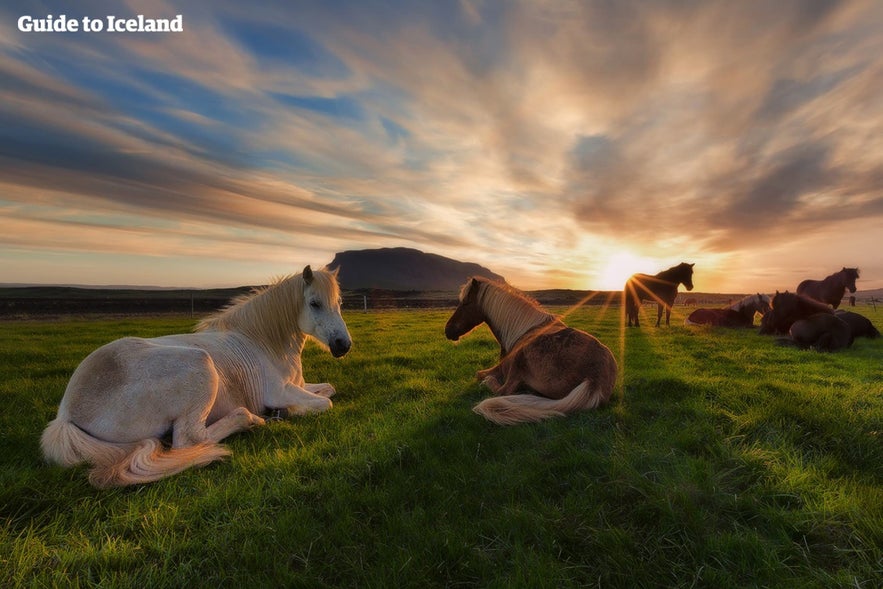
As you travel, the only thing you need to focus on is enjoying the experience. The driving, details and accommodation are taken care of, and your guide knows exactly how to make the experience memorable.
Guided tour packages are also available in many different lengths of time, so if you have a couple of days, a full week or even a couple of weeks, there’s something to suit you. Travel can at times be stressful and exhausting, but it doesn’t have to be, and when you add up the costs of transport and accommodation, a guided tour package is worth it for the ease of having everything in one place.
더 많은 흥미로운 게시글
아이슬란드 서부, 웨스트피오르드의 마법
웨스트피오르드를 마법과도 같은 장소로 만드는 것은 무엇일까요? 웨스트피오르드에서는 역사와 전통이 오늘날에 어떻게 공존하고 있을까요? 아이슬란드의 초자연에 대한 역사 웨스트피오르드(Westfjords)는 아이슬란드에서 가장 외딴 곳입니다. 아마도 그렇기 때문에 이 곳에 더더욱 초자연적인 대상에 대한 이야기가 많은 것일 수도 있습니다. 멋진 경치와 높은 산...더 보기아이슬란드의 퍼핀 관측지
아이슬란드에서 퍼핀을 가장 잘 볼 수 있는 곳은 어디일까요? 계절 상관 없이 항상 퍼핀을 볼 수 있을까요? 퍼핀 관측을 위한 특별한 투어가 있을까요? 얼마나 가까이에서 봐도 될까요? 아이슬란드의 가장 사랑스러운 새, 퍼핀에 대한 모든 것을 지금부터 알려드리겠습니다. 아이슬란드를 찾는 많은 분들이 퍼핀을 보고 싶어합니다. 작고 귀여운 체구, 밝은 오렌지...더 보기아이슬란드 내 드론 사용에 대한 모든 것
아이슬란드에서 드론을 사용하려면 어떤 법규를 숙지해야 할까요? 아무데서나 드론을 띄워도 되는지 궁금하시죠? 만약 아무데서나 드론을 사용하는 게 안 된다면 어디에서 드론을 날리는 게 가장 좋을까요? 아이슬란드에서 드론을 이용하기 위해 필요한 모든 것을 지금부터 알려드리겠습니다! 멋진 드론 촬영 영상도 포함되어 있으니 읽어봐 주세요! 아이슬란드 렌트카...더 보기

아이슬란드 최대의 여행 마켓플레이스를 전화에 다운로드하여 전체 여행을 한 곳에서 관리하세요
전화 카메라로 이 QR 코드를 스캔하고 표시되는 링크를 누르면 아이슬란드 최대의 여행 마켓플레이스를 주머니에 넣을 수 있답니다. 다운로드 링크가 포함된 SMS 또는 이메일을 받으려면 전화번호 또는 이메일 주소를 추가하세요.

